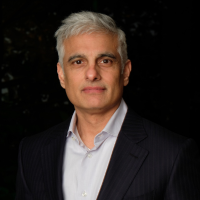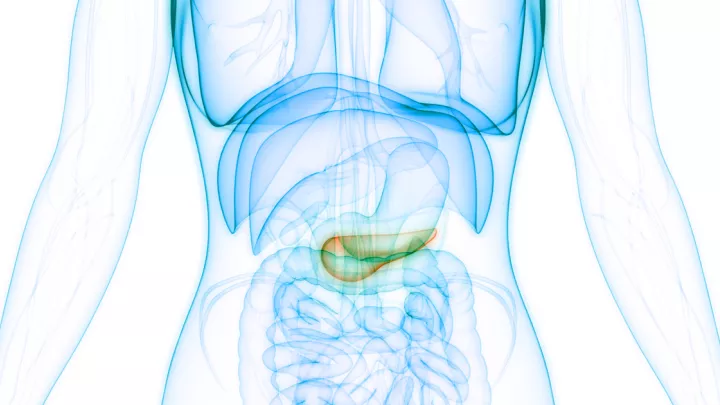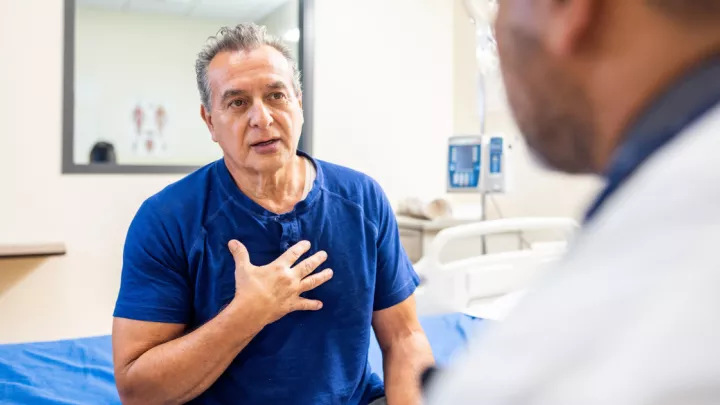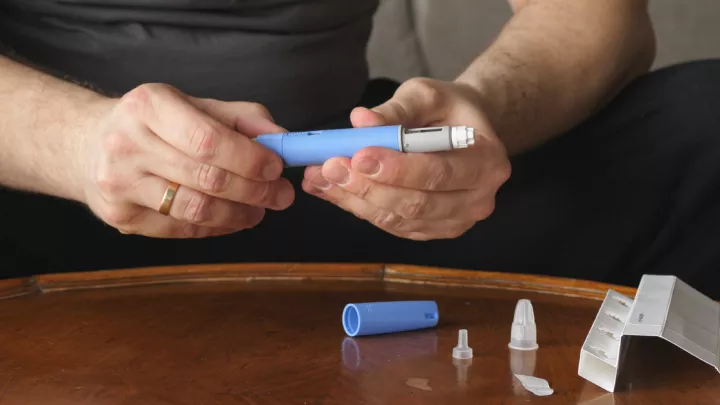Cutting-edge clinical trials provide new hope for early detection of pancreatic cancer

By Ed Rider, University of Nebraska Foundation
“You have pancreatic cancer.”
These four words are among the most devastating a person will ever hear. The difficulty of diagnosing cancer of the pancreas early makes it one of the most lethal and aggressive types of cancer. These individuals have just a 10% chance of living beyond five years.
Every year, more than 60,000 people in the United States are faced with a similar diagnosis – people like Linda Kimball, the owner of a men’s barber shop in Atlantic, Iowa. “I was in shock and a little scared because I knew that it was a bad cancer to have,” Kimball says.
Researchers and clinicians at Nebraska Medicine and its academic partner, University of Nebraska Medical Center, believe pancreatic cancer can be detected in its earliest stages. That belief is so strong that in 2018, the University of Nebraska Board of Regents approved establishing the Pancreatic Cancer Center of Excellence at the Fred & Pamela Buffett Cancer Center.
James Armitage, MD, and Shirley Young both lost their spouses to pancreatic cancer. Nancy Armitage died 16 months after her diagnosis of pancreatic cancer. Jim Young, former chair of Union Pacific Railroad, died in 2014, two years after his diagnosis.
“It’s hard to describe how much this disrupts your life,” says Dr. Armitage, the Joe Shapiro Professor of Medicine in the UNMC Division of Oncology and Hematology, and a cancer doctor at Nebraska Medicine. “I went to talk to Shirley’s family about developing a pancreas cancer program, and she understood the situation.”

The result was the development of the Pancreatic Cancer Center of Excellence. Sunil Hingorani, MD, PhD, an accomplished and internationally recognized pancreas cancer researcher and clinician, was named the inaugural recipient of the Nancy Armitage Pancreas Cancer Clinical Research Presidential Chair and the first director of the center.
Dr. Hingorani’s research success is well documented. He helped develop a model to accurately mimic human pancreas cancer from its precancerous inception to its advanced stages.
Kelsey Klute, MD, a gastrointestinal cancer doctor at Nebraska Medicine, says UNMC’s world-class researchers and clinicians are working diligently to find new ways to detect pancreatic cancer earlier through clinical trials and a recently developed program in early detection.
“Clinical trials are our best way to improve survival, not only for patients diagnosed with pancreas cancer over the next five or 10 years, but also for patients facing pancreas cancer today,” Dr. Klute says.
.png)
Kimball never considered in March 2021 that she might have pancreatic cancer when she began to experience pain in her stomach that radiated to her back. Thinking her acid reflux medication was no longer working, she went to see her physician in Atlantic. Additional tests at the Fred & Pamela Buffett Cancer Center revealed pancreatic cancer.
Dr. Klute presented Kimball with the opportunity to take part in a clinical trial, incorporating a heart failure medication called digoxin with FOLFIRINOX, a standard chemotherapy drug.
“I had no reservations once Dr. Klute explained that this was not a new medication, that it had been around for years and had been used for heart conditions,” Kimball said.
Despite some lingering effects from the chemotherapy, Kimball is feeling better about her prognosis. On Dec. 30, 2021, Kimball received news that her most recent CT scan showed no signs of cancer.
Want to support the Pancreatic Cancer Center of Excellence? Contact Tom Thompson at tom.thompson@nufoundation.org or 800.432.3216.







